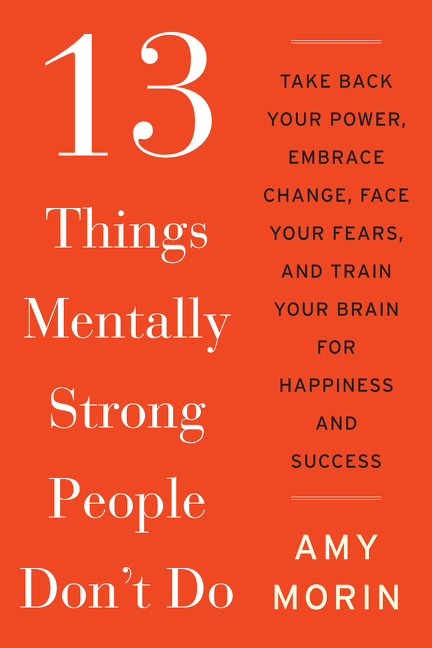
Minding your mental strength
Posted On February 14, 2024
Working on her mental strength helped Amy Morin get through the unexpected loss of her mother and husband. Now she’s helping others work on it too.
Our guest in a recent episode of “What’s Working with Cam Marston,” Morin is the successful author of several books on mental strength – all centered on the premise of 13 things mentally strong people don’t do. A therapist by trade, her book series started as a blog post she wrote after losing her mother to an aneurysm and husband to a heart attack at age 26.
“It was really my own journey that made me want to know more about mental strength,” she said. “I really wanted to know what works and what doesn’t. Then on one of the lowest days of my life, I wrote that article that got 50 million views. I had really written it just as a letter to myself about what mentally strong people don’t do.”
Among the 50 million viewers of that post was a literary agent who suggested she write a book. Eventually, those books sold so well that she now writes and promotes them full-time.
It’s a message that obviously resonates with many today, with more acceptance of mental health issues – even though mental health and mental strength aren’t the same.
“You can have a mental health issue like depression and continue to build mental strength,” she said. “There was this belief that mental strength was about acting tough, kind of like the Navy SEAL persona of pretending that pain isn’t a problem for you and just pushing through anything no matter what. That idea has changed over time. If anything good came out of COVID, I think that was it. We realized very quickly that it only takes a few things in our lives, a few changes to our environment, to really put any of us in a serious mental health situation.”
 So what is mental strength and how does it differ from mental health? Morin says it comes down to three categories:
So what is mental strength and how does it differ from mental health? Morin says it comes down to three categories:
- The way you think. “It’s about knowing that everything you think isn’t true,” she said. “Your brain lies to you. If you build mental strength, you can kind of figure that out.”
- The way you feel. “The emotional component is that I don’t have to be happy all the time and I’m OK with that,” Morin said. “But also, if I wake up on the wrong side of the bed, I don’t have to stay stuck there. I do have some ability to change my emotional state when I need to.”
- The way you behave. “The behavioral piece is knowing: What kind of action do I want to take?” she said. “And sometimes that’s contrary to how I feel. I may not feel like going to the gym, but I push myself to do it.”
While her books are generally geared toward people looking to work on their own mental strength, Morin also has some advice for what types of traits employers should be looking for in mentally strong job candidates:
- Ability to own up to their mistakes
- No fear of asking questions that might seem embarrassing or “dumb”
- Ability to manage their emotions
You can find Morin’s books and her podcast, “Mentally Stronger,” on her website, amymorinlcsw.com.